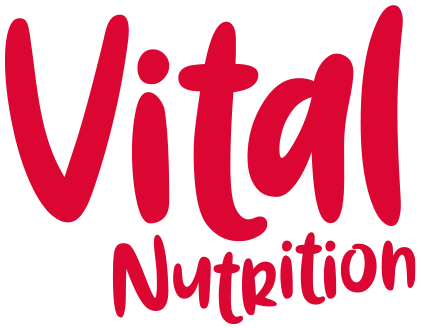The lowdown on perimenopause
Perimenopause is a word and topic that has recently been higher on society’s agenda than ever before. But what does it mean? Have we been misusing the word menopause all this time?
Firstly, let’s define perimenopause: it represents the transformative period of hormonal changes leading up to, and for the year following, our final menstrual period - this year anniversary is our menopause, just one day in time.
The average age of natural menopause in the UK is 51, and women can be in transition for as long as 10-15 years, though the average is closer to 4 years, according to The Centre for Menstrual Cycle and Ovulation Research. For most women, this transition begins in our mid-late 40s, but for some it can be early 40s, or even in our 30s; we are all unique despite experiencing the same recalibration.
During this transition, the relationship between our brain and our ovaries is forever changing and their communication system becomes increasingly less effective. It is not a linear process: in the early phases, the most profound change is lowered progesterone, due to shorter luteal phases and increased anovulatory (where ovulation doesn’t take place) cycles. Simultaneously, oestrogen can increase up to three-fold, which exacerbates and causes many unwelcome symptoms. Oestrogen continues to oscillate wildly, until menopause, and progesterone gradually and irreversibly declines.
Although perimenopause is a natural event in a woman's life, let’s not pull any punches, this transition can be tough, really tough, and arising symptoms are often severe enough to adversely affect our health, wellbeing and quality of life; relationships, family life and our relationship with our self can all be significantly impacted.
For some of us, the physical symptoms will outweigh the mental/emotional ones, and vice versa; for some, both will be experienced as profoundly.
Some of the most widely reported symptoms include:
● hot flushes
● fatigue
● sore breasts
● sleep disturbances
● mood changes
● weight gain
● changes to cycle lengths, flow and pain
● vaginal and sexual changes
● anxiety and depression
● joint and muscle pain
● bladder changes
● skin changes
● hair loss
● digestive issues
● impaired cognition
How can Nutritional Therapy support women in perimenopause?
For Nutritional Therapists, understanding the biochemical processes at play in perimenopause enables us to identify key steps that can be taken to support our bodies for a smoother transition. Here are some effective suggestions as a starting point:
● Eat more protein. Include a quality protein with every meal. Good sources include fish, chicken, turkey, nuts, seeds, eggs, quinoa, tempeh, beans and
lentils.
● Eat fats with every meal. Great choices include: oily fish, olive oil, avocado, flaxseed, nuts and seeds.
● Choose unrefined carbohydrates (ditch white for brown!). Brown rice, oats and root vegetables are all great choices.
● Eat the rainbow! Aim to achieve a spectrum of colour from your fruit and vegetable intake.
● Eat cruciferous vegetables, such as broccoli, cauliflower, sprouts and rocket.
● Include a variety of herbs and spices, both dried and fresh.
● Feed your friendly gut bacteria, with fibre (plant foods) and fermented foods (sauerkraut, kimchi, live plain yoghurt).
● Manage stress. Easier said than done, but getting outside, exercise, breathing exercises, managing time and finding pockets for yourself really does
help.
● Support better sleep - not eating late in the evening or having caffeine after 2pm will help. Avoid screen or bright light exposure for at least an hour
before bedtime.
● Minimise toxins - choose natural skin care and cleaning products, choose organic foods, reduce alcohol and filter your drinking water.
Accessible, informative and enjoyable reads (and great people to follow on social media):
● Maisie Hill - Perimenopause Power
● Dr Shahzadi Harper - The Perimenopause Solution
● Dr Louise Newson - Preparing for the Perimenopause and Menopause
By Sarah Smith, December 2021.

